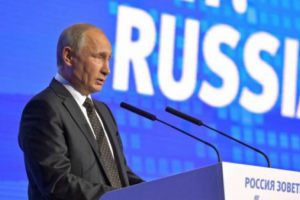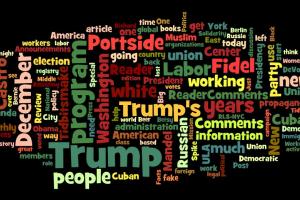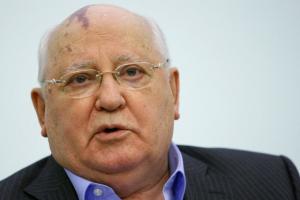Urgent to Progressives: Stop Fueling the Anti-Russia Frenzy
Common Dreams
 Progressives who treat anti-Russia propaganda spin as fact, in order to weaken Trump, are encouraging a kind of McCarthyism. Of all the good reasons to “delegitimate” Trump, alleged Kremlin intervention in the election should rank low. Focus should instead be on his greed, pathological lying, enthusiasm for oligarchy, bigotry, environmental destruction, racism, misogyny, economic injustice, voter suppression and rampant conflicts of interest.
Progressives who treat anti-Russia propaganda spin as fact, in order to weaken Trump, are encouraging a kind of McCarthyism. Of all the good reasons to “delegitimate” Trump, alleged Kremlin intervention in the election should rank low. Focus should instead be on his greed, pathological lying, enthusiasm for oligarchy, bigotry, environmental destruction, racism, misogyny, economic injustice, voter suppression and rampant conflicts of interest.










Spread the word